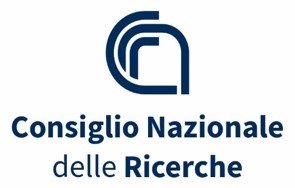Centro Nazionale delle Ricerche
The National Research Council (CNR) is the largest public research institution in Italy funded in 1923, the only one under the Research Ministry performing multidisciplinary activities. In particular the experimental ultracold quantum gases group at CNR has more than 20-years expertise in the research field of quantum liquids composed by ultracold fermionic and bosonic atoms. In the last years, the UQG group has reported groundbreaking studies on the dynamics of degenerate Bose and Fermi gases in optical structured potentials that are relevant for this project. More specifically, the CNR experimental research units involved in PASQUanS2.1 are based in Sesto Fiorentino at the Istituto Nazionale di Ottica (INO) of CNR in collaboration with the European Laboratory for Non-Linear Spectroscopy (LENS) and in Trieste, in collaboration with the University of Trieste. The theoretical research group at CNR-INO, is internationally renowned for the quantum theory of entanglement useful for precision measurements, having made fundamental contributions to the development of the field. These results have established the Fisher information as a tool for the characterization of complex quantum states, in particular their entanglement and technological usefulness.
Role within PASQuanS 2
CNR will develop programmable platforms based on ultracold alkali and alkaline-earth atoms. The first will be a task-oriented fermionic simulator of specific quantum transport model-Hamiltonians for real-world semi- and superconducting electronic devices, featuring local control over the potential landscape. The second will consist of a scalable and programmable quantum register based on the robust nuclear spins of two-electron atom arrays, featuring high-fidelity individual atom addressing. Its focus will be to implement high-speed and high-precision optical techniques to obtain the deterministic loading of large atom arrays and develop novel cooling and spin manipulation protocols, which will allow it to realize and utilize large entangled multi-particle states. In addition, the CNR theory team will study new criteria to witness and classify multipartite/multiparticle entanglement and applications to multiphase interferometry. These will quantify the quantum advantage with respect to classical computational approaches. New hybrid quantum-classical algorithms implementable with the atomic platforms realized by the consortium will be explored.



